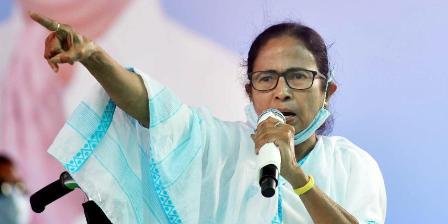2 more cheetah cubs die in MP’s Kuno National Park
Madhya Pradesh, May 25: Days after the death of the first cub, two more cubs of cheetah Jwala died on Thursday in Madhya Pradesh’s Kuno National Park. Cheetah Jwala (Siyaya) gave birth to four cubs on March 24 this year.
While three newly born cheetahs have died, the fourth one has been kept under observation as his health continues to be critical, as per the Kuno National Park.
The first cub, as per a forest department official, died of weakness.
“All the cub cheetahs were found to be weak, underweight and poorly hydrated. Mother cheetah Jwala, who delivered for the first time, is from the hund riyadh breed. Cubs, when nearly eight weeks old, desire to remain huddled around their mother. They had begun to trod with their mother 8-10 days ago,” said the Kuno National Park after the death of two cubs.
Bareilly bride chases man fleeing marriage for 20 kms, drags him back to mandap
“As per cheetah experts, the percentage of cub cheetahs surviving in Africa is usually very low. Under the standard protocol, the procedure for postmortem is underway,” the park added.
The statement by the park said that mother cheetah Jwala was healthy and kept under observation.
The latest fatality brought the death toll of cheetahs in Kuno to six in the last two months, including three cheetahs translocated from African nations. After the death of two cub cheetahs, Kuno National Park has left with only one cub.
One of the Namibian cheetahs, Sasha, succumbed to a kidney-related ailment on March 27, while another cheetah, Uday, from South Africa, died on April 13.
Daksha, a cheetah brought from South Africa, died of injuries following a violent interaction with a male during a mating attempt on May 9.
Three deaths in three months: Has Project Cheetah become toothless?
Vincent Van Der Merwe, a South African cheetah metapopulation expert said, “Whilst the loss of one of Siyaya’s cubs is unfortunate, the loss is well within expected mortality rates for cheetah cubs. Cub mortality is particularly high for wild cheetahs. For this reason, cheetahs have evolved to give birth to large litters compared to other wild cats. This enables them to compensate for the high cub mortality rate.”
“The death was attributed to dehydration. Weaker cheetah cubs in a litter will typically suckle less than their stronger siblings. This death should be viewed within the context of ‘survival of the fittest’. As part of the natural selection process, weaker cheetahs will be eliminated from the gene pool. This ensures that only the fittest and strongest survive, to the benefit of wild cheetah survival,” he said.
-The India Today






